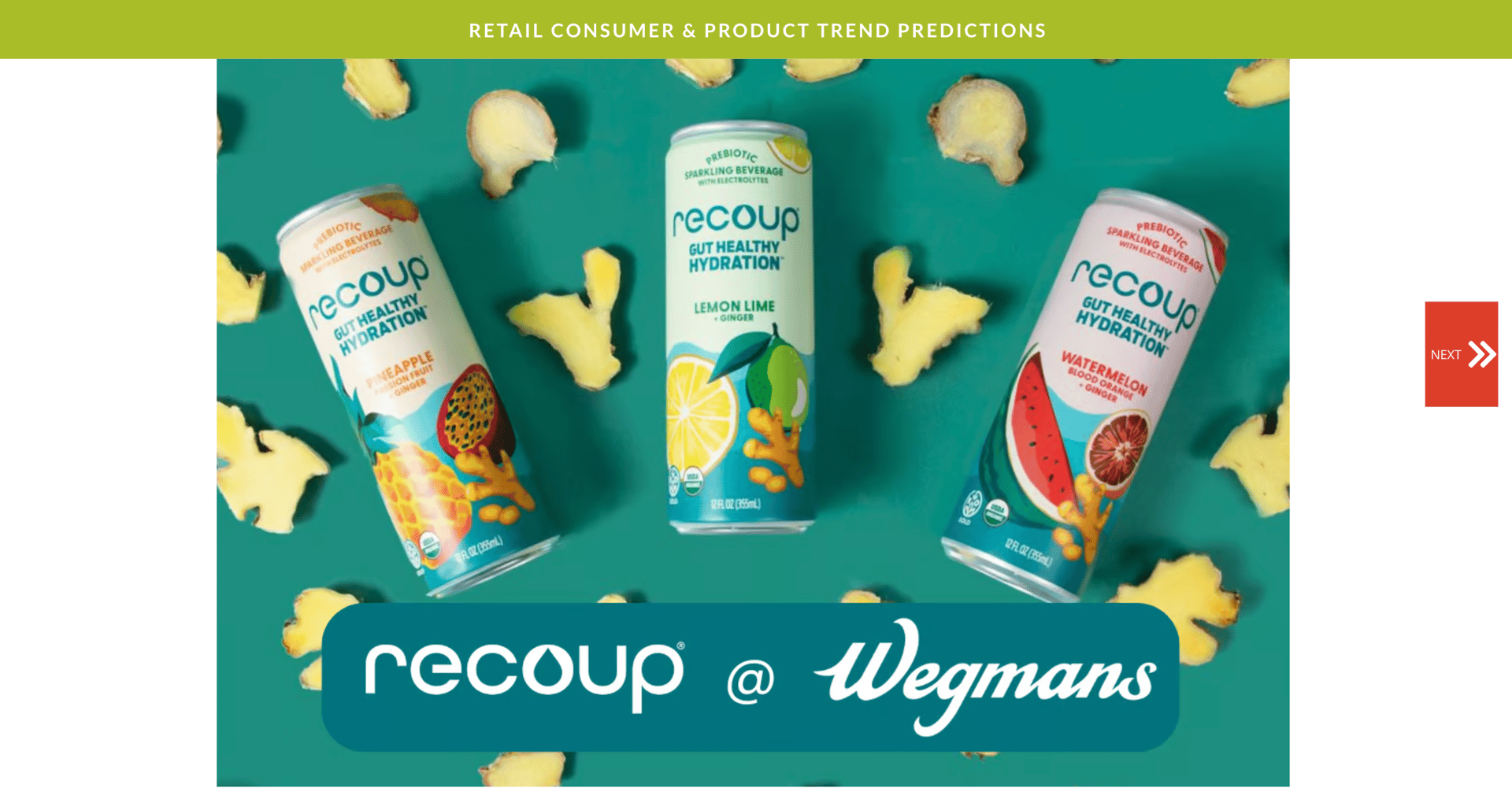WHAT’S NEXT IN 2025?
RETAIL CONSUMER & PRODUCT TREND PREDICTIONS

New line for women with “clean energy” formula of 80mg of natural caffeine from green tea, essential vitamins, no sugar and a smooth sustained energy experience without jitters. Credit: Aspire Brands Inc.
As we step into 2025, the food and beverage industry stands at a crossroads of challenges and remarkable opportunities for innovation. With consumer expectations evolving rapidly, brands that adapt will gain a competitive edge. This year’s trends highlight the need for agility and responsiveness to emerging demands. Here are key trends we predict will shape the industry in 2025 and beyond.
Holistic Wellness through Functional Foods: In 2025, consumers will increasingly view food as part of their overall wellness routine. They expect meals to support not just physical health but also mental well-being and mood enhancement. This shift continues to drive the desire for functional foods—think beverages fortified with adaptogens, snacks rich in prebiotics/probiotics, and nutrient-dense meal replacements.
To succeed, brands need to be transparent about ingredient efficacy and clearly communicate the scientifically backed health benefits of their products in a simple, appealing way to engage health-conscious consumers. For example, consider the rise of Poppi prebiotic soda and Remedy Organics beverages, which integrate adaptogens and superfoods and demonstrates the appeal of tasteful functionality to a market eager for healthful benefits.
By Mario DiFalco and Kim Lopez-Walters
Fast-moving trends, emerging demands highlight the need for innovation agility, responsiveness.
Change Brings Challenge, Innovation Opportunity

Sustainability 2.0: From Green to Regenerative Practices: Sustainability has evolved from a simple focus on "less harm" to a demand for "more good." In 2025, consumers expect brands to play an active role in environmental restoration through regenerative agriculture, soil health, and circular economy principles.
Sustainable packaging is now a standard expectation, with compostable materials taking center stage. Brands that can authentically align their growing, sourcing and manufacturing processes with these values will continue to stand out in a crowded marketplace.
Sustainability examples include products from Alter Eco, Burroughs Almonds, and Grgich Wines. These companies and brands emphasize regenerative growing and processing practices and demonstrate a commitment to improving ecosystems rather than just minimizing impact.
It’s Mocktail Time! Created with ultra-refined seltzer, White Claw 0% Alcohol combines iconic White Claw flavors with elevated new secondary beverage alcohol drinks notes, the company says. It also adds hydrating electrolytes and contains with only a fraction of the sugar and calories—15 per 12oz can. Credit: Mark Anthony Brands, Inc.
Expanding the Plant-Based Landscape: In 2025, the plant-based category will continue to broaden beyond traditional meat alternatives, with consumers seeking innovative options across various food segments. New plant-based offerings will encompass snacks, dairy alternatives, and even unique ingredients derived from aquatic plants, such as seaweed, duckweed, and algae.
Aquatic plants are gaining traction for their nutritional and sustainable benefits. Requiring fewer resources than traditional crops, they also support ocean health and offer brands a new way to meet demand for sustainable, nutrient-rich foods. For example, Ocean's Halo is innovating with kelp-based sauces and snacks that combine unique and appealing flavors with the health benefits of aquatic plants.
Targeted Women’s Health Products: As women’s health gains more attention, brands have a chance to meet the demand in this underserved market. Products addressing distinct health needs—particularly for hormonal balance—are on the rise, with menopause-focused items incorporating ingredients such as phytoestrogens and adaptogens. Brands that thoughtfully address these specific health challenges will likely find a receptive audience eager for tailored solutions.
Examples here include Bonafide Health’s Revelation supplements and Menowell nutrition bars. These perimenopause and menopause products are designed to ease hormonal shifts and enhance well-being.
The Next Generation of Protein Innovation: Consumer expectations around protein are shifting towards sustainability and nutrition. Innovations in precision fermentation and plant-based protein blends are leading the charge, providing allergen-friendly options without compromising on taste.
The rise of alternative protein sources such as pea, oats, chickpea, lentil and algae excite consumers. Brands exploring these innovative sources may find significant appeal among health-conscious consumers. One interesting example involves Nature’s Fynd, a fungi-based yogurt that replicates dairy’s taste and texture to satisfy flexitarian needs and new protein sources that satisfy.
Surge of Non-Alcoholic Beverages: As consumers increasingly prioritize wellness and mindful drinking, the demand for non-alcoholic beverages is surging. These drinks provide not only hydration but can also offer functionality—including improved digestion, enhanced mood, and cognitive support.
Innovative brands are leveraging ingredients like adaptogens, probiotics, and herbal extracts to create beverages that cater to health-conscious consumers seeking alternatives to traditional alcoholic drinks. This shift reflects a growing interest in mindful consumption and healthier lifestyle choices without alcohol. Kin Euphorics, introduced in 2023, offers a line of non-alcoholic beverages crafted with adaptogens and botanicals designed to enhance relaxation and social enjoyment.

Protein’s Progression: Alternative proteins continue to emerge, expand. Nature’s Fynd leverages fermentation with fungi-based protein to bring more new dairycase options. Credit: Fynders Group Inc.
The Rise of AI and Personalization: Artificial intelligence and data analytics are helping brands better anticipate trends, personalize offerings, and enhance supply chain efficiencies. Companies embracing these strategies are poised to meet consumer demand for tailored experiences. As these technologies advance, expect personalized nutrition solutions to grow across grocery and food companies.
One example involves the food delivery service Hungryroot uses AI to gather data points on food and menu preferences to provide a personalized grocery and meal delivery service.
Preparing for a Transformative Year
As the food and beverage industry enters a pivotal year, brands must respond to consumer demands for transparency, functionality, and sustainability. Those that innovate with data-backed insights and a clear understanding of evolving expectations are more likely to thrive. The ability to adapt to these trends will be essential for brands looking to capture the attention and loyalty of today's discerning consumers.
Mario DiFalco and Kim Lopez-Walters are founding partners of Illuminate Growth Partners. Illuminate brings deep industry expertise and insight, specializing in helping food and beverage and CPG companies navigate emerging trends and seize growth opportunities. Learn more at www.illuminategrowth.net


